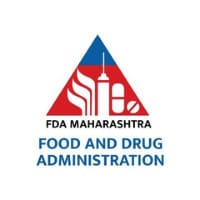Sections
Food
The Food Safety Division of the Food and Drug Administration (FDA), Maharashtra, ensures the availability of safe, high-quality, and unadulterated food to citizens through the implementation of the Food Safety and Standards Act, 2006, and it’s Rules & Regulations, 2011. Enforced from August 5, 2011, this Act replaces multiple food-related laws, streamlining food safety regulations under a single, comprehensive framework.
FDA Maharashtra regulates food businesses, conducts inspections, tests food samples, and takes strict action against adulteration, misbranding, and violations. By enforcing hygiene, safety, and quality standards, the division plays a crucial role in protecting public health and ensuring consumer confidence in the food supply.
Drug
The Drug Section of the Food and Drug Administration (FDA), Maharashtra, is responsible for ensuring the availability of safe, high-quality, and effective drugs, medical devices and cosmetics to the public. It regulates the licensing of drug manufacturers, sales establishments, blood banks, and testing laboratories, while also granting various regulatory certificates. The section enforces key laws, including the Drugs and Cosmetics Act, 1940, and Drug Price Control Order, 2013, to prevent the sale of substandard, spurious, or unlicensed drugs. Regular inspections, sample testing, and strict legal actions against violations help safeguard public health and promote compliance within the pharmaceutical sector.
Laboratory
The Food and Drug Administration (FDA), Maharashtra, operates three state-of-the-art laboratories in Mumbai, Chhatrapati Sambhajinagar, and Nagpur, ensuring scientific testing and quality control of food, drugs, and cosmetics. These laboratories are equipped with advanced chemical and instrumental testing facilities, with microbiology testing capabilities under development in Chhatrapati Sambhajinagar and Nagpur.
Existing FDA Laboratories:
Mumbai Laboratory:
A fully equipped facility with NABL accreditation, offering comprehensive testing across all domains.
- Drug Testing Capacity: 2,700 samples/year
- Food Testing Capacity: 2,500 samples/year
Chhatrapati Sambhajinagar Laboratory:
NABL-accredited food testing lab, with comprehensive chemical and instrumental testing.
- Microbiology testing facility under development
- Drug Testing Capacity: 2,200 samples/year
- Food Testing Capacity: 2,000 samples/year
Nagpur Laboratory:
Functional from a rental premises, offering chemical and instrumental testing, with microbiology testing under consideration.
- Drug Testing Capacity: 500 samples/year
- Food Testing Capacity: 1,700 samples/year
The Mumbai, Chhatrapati Sambhajinagar, and Nagpur food testing laboratories have been notified by FSSAI, ensuring compliance with national food safety standards.
Future Expansion:
To strengthen its testing infrastructure, FDA Maharashtra is working towards establishing new testing laboratories in Nashik and Pune and upgrading existing facilities with state-of-the-art equipment and trained manpower.
Additionally, five private FSSAI Notified NABL-accredited laboratories—TUV India, Dr. Amin Controllers, Geochem Laboratories, Ashwamedh Engineers & Consultants, and ProComm Laboratory NBHC—are empanelled for food surveillance sample testing until March 31, 2025.
Through its advanced laboratory network, rapid testing protocols, and stringent quality control measures, FDA Maharashtra ensures safe and high-quality food, drugs, and cosmetics for public health protection.
Vigilance
The Vigilance Department of the Food and Drug Administration (FDA), Maharashtra, plays a crucial role in ensuring transparency, integrity, and accountability in the enforcement of the Drugs and Cosmetics Act, 1940, and the Food Safety and Standards Act, 2006. Established in 1985, this department operates under the Joint Commissioner (Vigilance), who functions under the direct supervision of the Commissioner, FDA Maharashtra.
Key Functions of the Vigilance Department:
- Investigating complaints related to illegal food and drug trade, corruption, and malpractice.
- Acting as a link between the FDA, police, and anti-corruption authorities.
- Addressing public grievances and redressing complaints.
- Conducting office inspections, stock verifications, and asset/liability audits.
- Reviewing accounting irregularities and administrative misconduct.
- Monitoring media reports on FDA-related complaints and taking necessary action.



